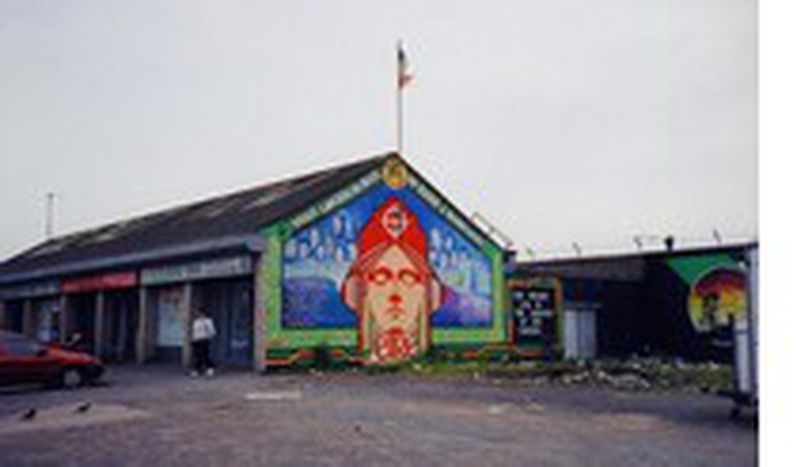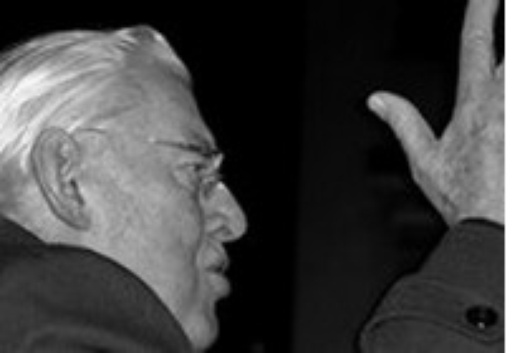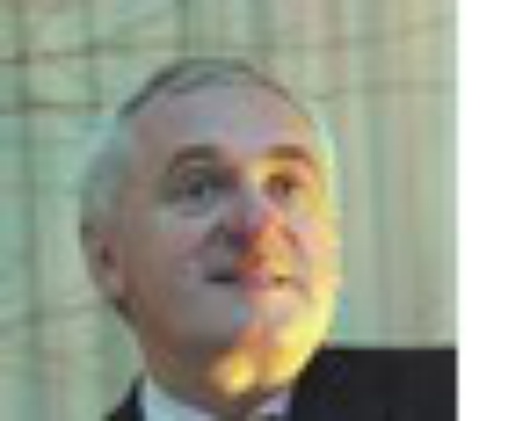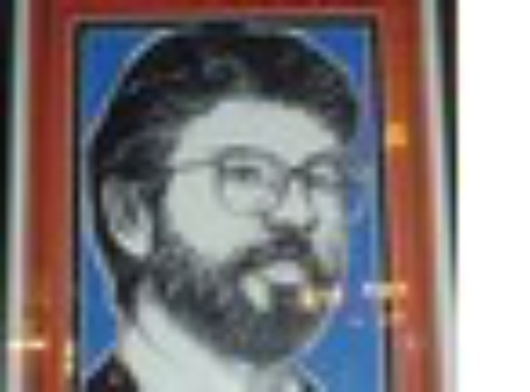
Northern Ireland elections: then what?
Published on
Assembly elections took place on March 7, ahead of a March 26 deadline to restore the power-sharing process
In the thirteen years since the IRA and loyalist ceasefires in Northern Ireland, the language of politics has shifted from the tragic (bloody Friday, bloody Sunday) to the edifying (Good Friday - peace agreement in Easter 1998). There's been over 30 elections since the early 1970s. But will there ever be a lasting settlement?
The autonomy agreed under Good Friday planned a return to what has become known as power-sharing, not a return to the simple majority rule that existed until the '70s. The arrangement was designed to work on the consensus and inclusion of both unionistsandnationalists (sometimes inaccurately written as Protestants and Catholics).
New conciliatories
An executive government was planned on the basis of the 'd’Hondt system.' It allocates government places according to the number of seats won at election (not a single transferable vote or by quota). As unionists form the majority, they determine the first minister, with a nationalist serving as his deputy. This was already difficult with moderate forces. The hardliners occupying leading positions so far prove it unachievable.
The Assembly, to which voters will elect members on March 7, has lain almost empty since autumn 2002. After a series of Sinn Féin-linked security scandals and unionist complaints, its executive was suspended by the government in London at the behest of the parties.
Both sides approved a government-sponsored framework to restore devolution at St Andrews, Scotland, in October 2006. But those charged with leading any new power-sharing government have historically been the most opposed.
Ironically since the ending of terrorist violence, voters on both sides have shifted towards parties which represent the more hardline positions, who themselves have moderated in approach. The moderate Ulster Unionist Party (UUP) supported Good Friday, but fears they had made concessions ate away at their support. Reverend Paisley, leader of the larger Democratic Unionist Party (DUP), now represents mainstream unionism. He indicated that he will put himself forward as first minister with a Sinn Féin deputy, when the latter agreed to support the police. This support was obtained at the Sinn Féin Ard Fhéis (general assembly) on January 28 this year, but agreement on power-sharing is still not guaranteed.
Staying at home
 Although there is little chance extremists will outflank them at the ballot box over their new positions, both the DUP and Sinn Féin are privately more worried that their traditional voters may simply stay at home on Election Day. Paisley will have to convince the unionists (and themselves) that where more moderate unionists failed on Good Friday, they have succeeded at St Andrews. Their claim? The 'UUP were prepared to take republicans on trust and put them into government. The DUP has insisted republicans must deliver first.'
Although there is little chance extremists will outflank them at the ballot box over their new positions, both the DUP and Sinn Féin are privately more worried that their traditional voters may simply stay at home on Election Day. Paisley will have to convince the unionists (and themselves) that where more moderate unionists failed on Good Friday, they have succeeded at St Andrews. Their claim? The 'UUP were prepared to take republicans on trust and put them into government. The DUP has insisted republicans must deliver first.'
Although the 'bread and butter issues' - those unrelated to the constitutional position or sectarian violence- have assumed more importance since the central government unveiled a raft of unpopular measures for the province, from water charges to local taxes, such issues are unlikely to decide the outcome.
Ian Paisley once campaigned to 'smash Sinn Fein', and now looks poised to join Sinn Féin's Martin McGuinness into forming a new executive. The stage and the cast in Ulster politics may be familiar, but the plot has changed. The next act after the March 26 deadline could yet be worth watching.'
The rising star of Sinn Fein
Sinn Féin, former political wing of the IRA, entered the Stormont assembly 9 years ago as the minority nationalist party. Their rise both north and south of the border troubles mainstream politicians in the Republic.
Polls indicate that Sinn Féin (We Ourselves) will net 10% of the seats in the Irish general election in May 2007. With five TDs (members of parliament) and two of Ireland’s twelve MEPs, the political mainstream has been forced to take notice of its growing power.
Defined as a 'republican party committed to achieving a 32 county democratic socialist republic and the end of British rule in Ireland,' it became Ireland's 'fastest growing political party' when the IRA ended its 35 year campaign of violence on 28 July 2005 and 'destroyed all its arms.'
On January 28, at a special Ard Fheis (National Delegate Conference), over 90% pledged their support to the police system in Northern Ireland. Devolved assembly elections were set up for early March. In the Republic, support increased two percentage points to 9% .With the current coalition polling 38% of intended votes and the opposition coalition polling 37%, Sinn Féin could hold the balance of seats in the Dáil (lower house of parliament).
Sinn Féin favours higher taxes on capital and the corporate sector. Other parties fear this would deter foreign investment, which is the main motor or Ireland’s stellar economic growth rates. In present-day Ireland where most parties cluster around the centre to centre-right, Sinn Féin patrols the far left flank. In the European parliament, it's aligned with the most left-wing grouping. It's anti-EU: difficult in a country which consistently tops the tables for the highest EU support.
 Locally, they are intensely active with a diversifying electoral base and candidates; non-IRA linked Mary Lou McDonald won their first EU seat in the 2004 European elections. But for a party whose leaders have spent the last 30 years dodging questions whilst shooting bullets, it will take a long time to gain mainstream trust.
Locally, they are intensely active with a diversifying electoral base and candidates; non-IRA linked Mary Lou McDonald won their first EU seat in the 2004 European elections. But for a party whose leaders have spent the last 30 years dodging questions whilst shooting bullets, it will take a long time to gain mainstream trust.
WHAT THE OTHERS SAY:
 'I would lead my party into opposition rather than contemplate coalition with Sinn Féin'
'I would lead my party into opposition rather than contemplate coalition with Sinn Féin'
Bertie Ahern, leader of Fianna Fáil (Soldiers of Destiny) and current Taoiseach (Prime Minister)
 'Sinn Féin has made progress, but has yet to complete its journey to full democracy'
'Sinn Féin has made progress, but has yet to complete its journey to full democracy'
 Enda Kenny, leader of opposition Fine Gael (Family of the Irish)
Enda Kenny, leader of opposition Fine Gael (Family of the Irish)
'Delivery, delivery, delivery'
How one DUP member summed up what he wanted to see from Sinn Féin



